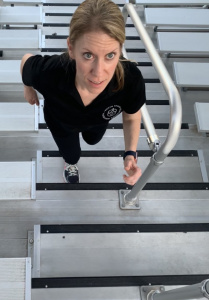The Best Athletes Stick to the Basics

Last week, Mathew Fraser, CrossFit Games Champion 2019 was interviewed on the Today Show, sharing what his favorite exercises for athletes were. He started the interview by saying this of why he didn't win the 2014 or 2015 games, but did win 4 consecutive years thereafter, at that time "everything outside of the gym was pretty hectic" elaborating that he made life changes including a "better sleep schedule, better diet, good mental health," in his subsequent winning years.
You can watch his full interview here
Matt isn't the first athlete to underline the importance of sleep in regards to sports performance. The National Sleep Foundation points to several highly successful athletes that get at least 10 hours of sleep each night: Usain Bolt and Serena Williams to name just two. They also reminds us that its REM deep sleep that is responsible for an athlete's full recovery after a hard effort, a time when the brain and body is being refueled. Sleep is critical for the brain to solidify muscle memory related to coordination. Getting adequate sleep is paramount for an athlete to return to his/her sport the next day alert, rested and ready to perform at his/her best.
Sleep is so important to optimizing sports performance, we talk about it with every single athlete that we partner with and we remind everyone we speak to about overall wellness that you simply cannot focus on a tailored sports nutrition plan without also ensuring that you're getting adequate sleep. Doing so is negating the efforts on one side in the name of the other.
So how much should an athlete be getting?
According to the National Sleep Foundation, teen and adult athletes should be getting 8-10 hours/night and here's the kicker: consistency is the key.
Tips for Getting Quality Rest (adapted from National Sleep Foundation):
- Make sleep a top focus--we pose the question, if you wouldn't dream about skipping an important practice or game, why would you skip on sleep? Plan when you're going to go to bed and stick to the plan Monday-Sunday.
- Refrain from using your smartphone, computer or watching television close to bed time. We're big fans of setting reoccurring alerts on devices that remind the user to turn it off.
- Consider creating a bedtime routine that primes the body for rest--(ex: 2 hours before bedtime: shower, 1 hour prior: turn off phone & TV, 30 minutes prior: meditate)
- Avoid drinking caffeine in the afternoon and alcohol before bedtime as both can affect your ability to stay asleep during the night. Instead, enjoy caffeine-free hot tea such as chamomile.
We mention all of this because we urge athletes to stick to the basics-- a consistent sleep routine coupled with a highly individualized sports nutrition plan can make all the difference with regards to sports performance and overall wellbeing.

Infographic source: The National Sleep Foundation

 RSS Feed
RSS Feed